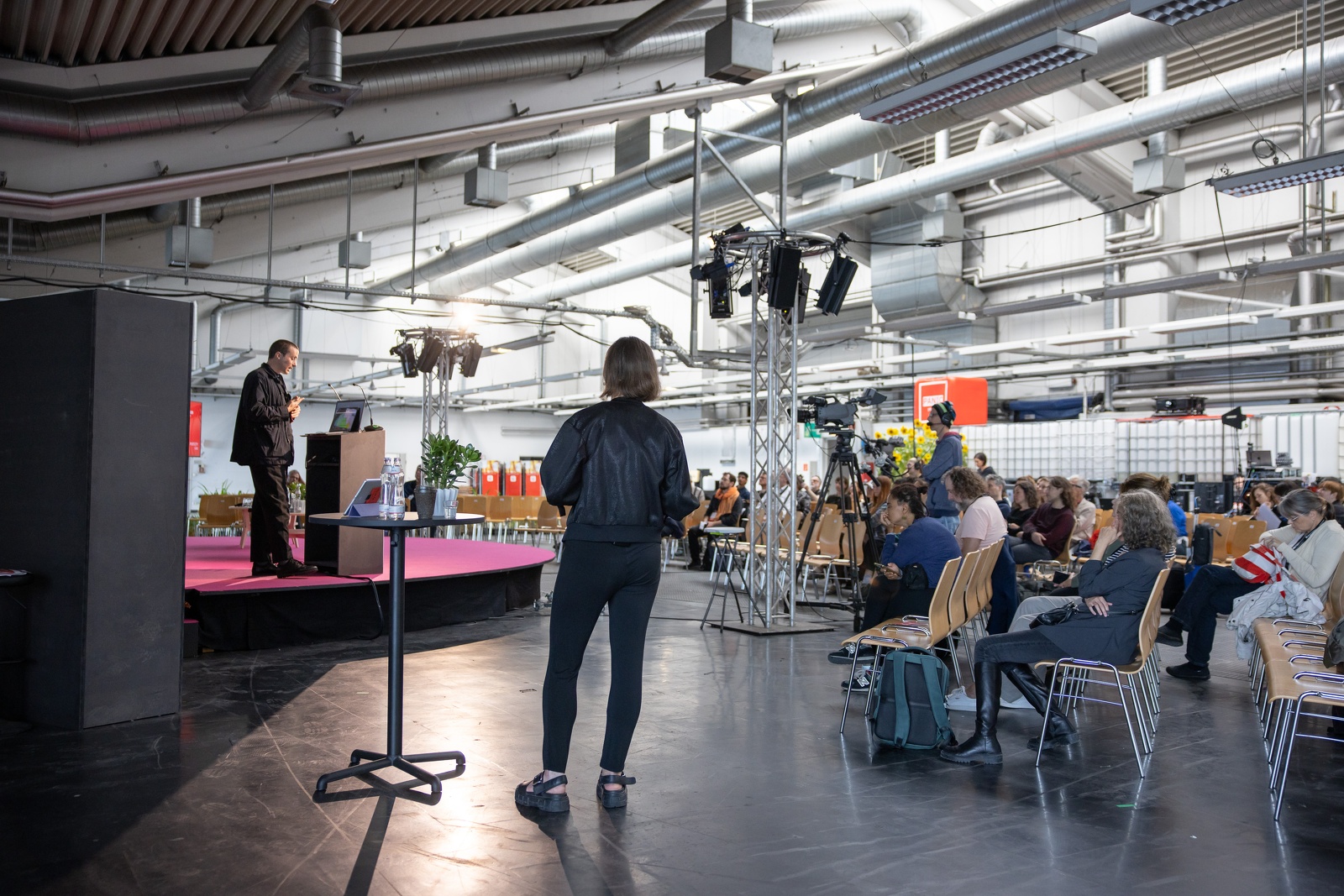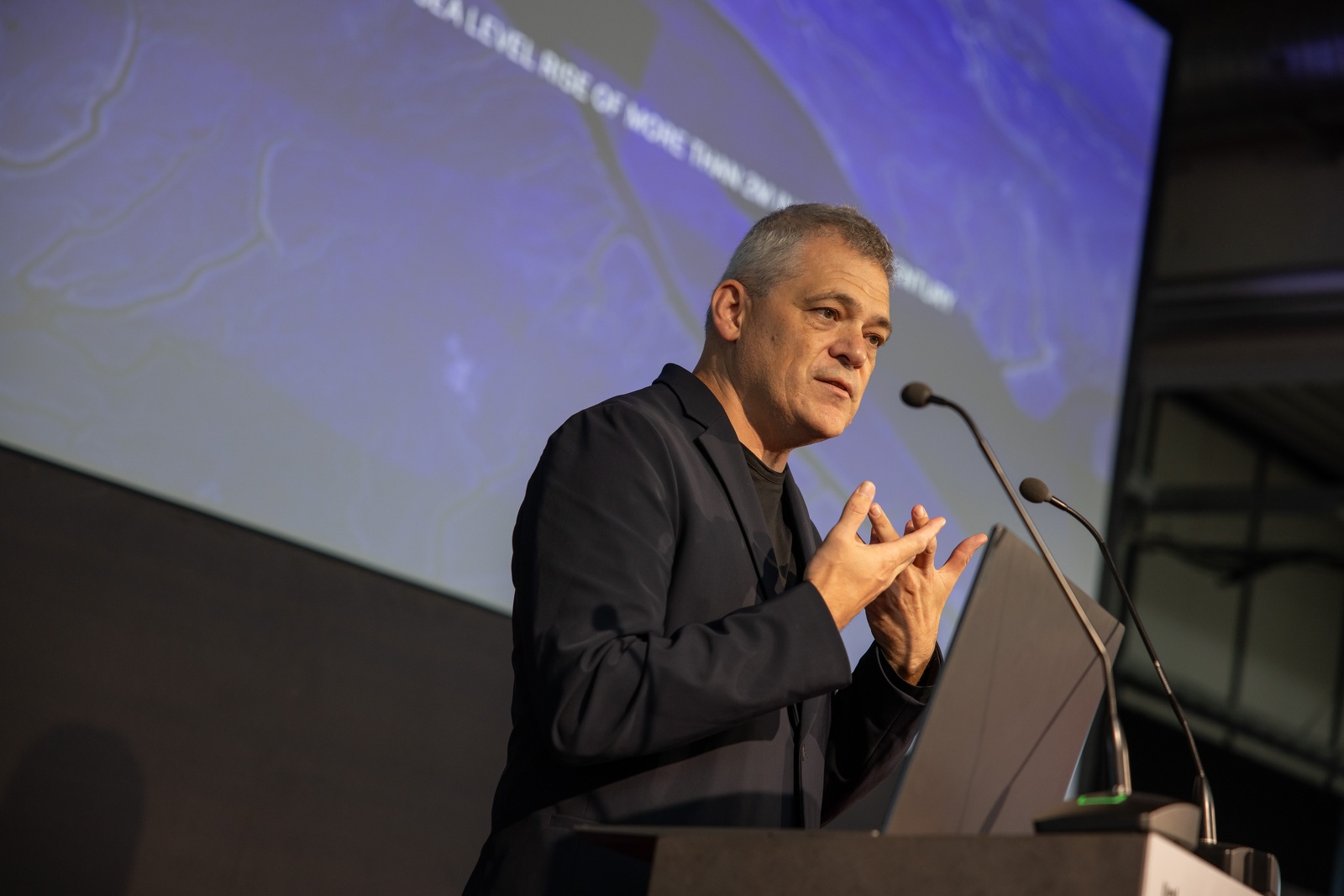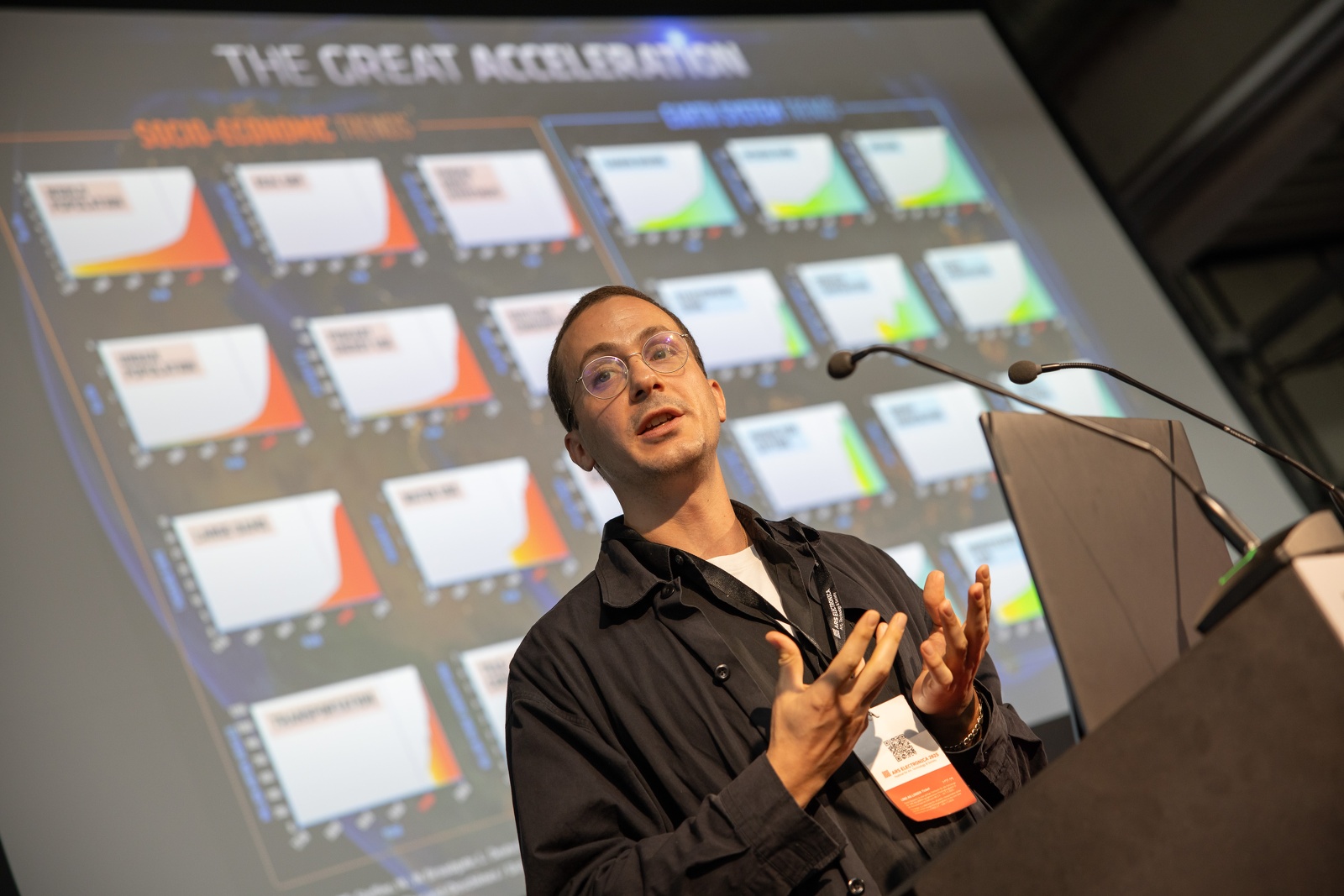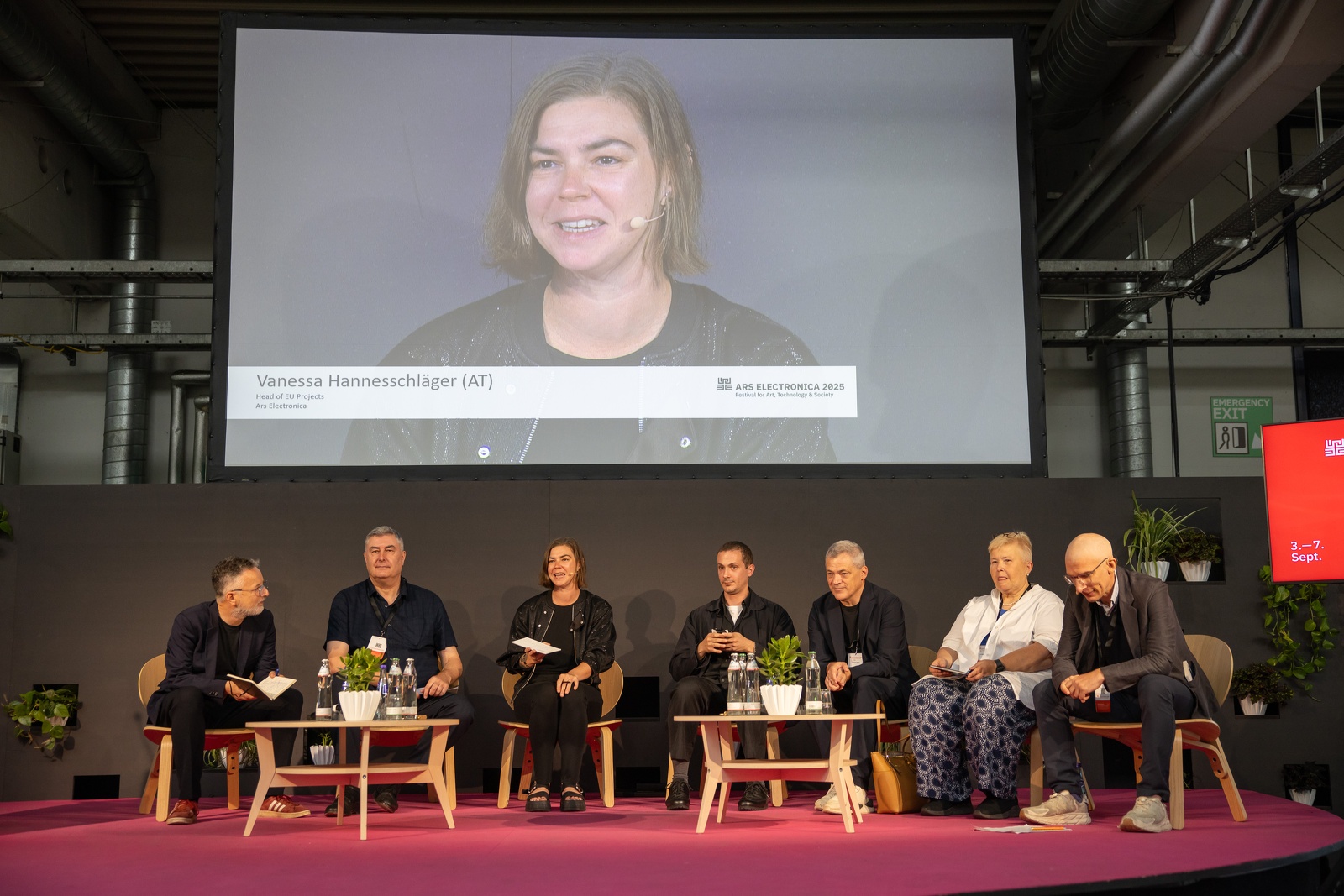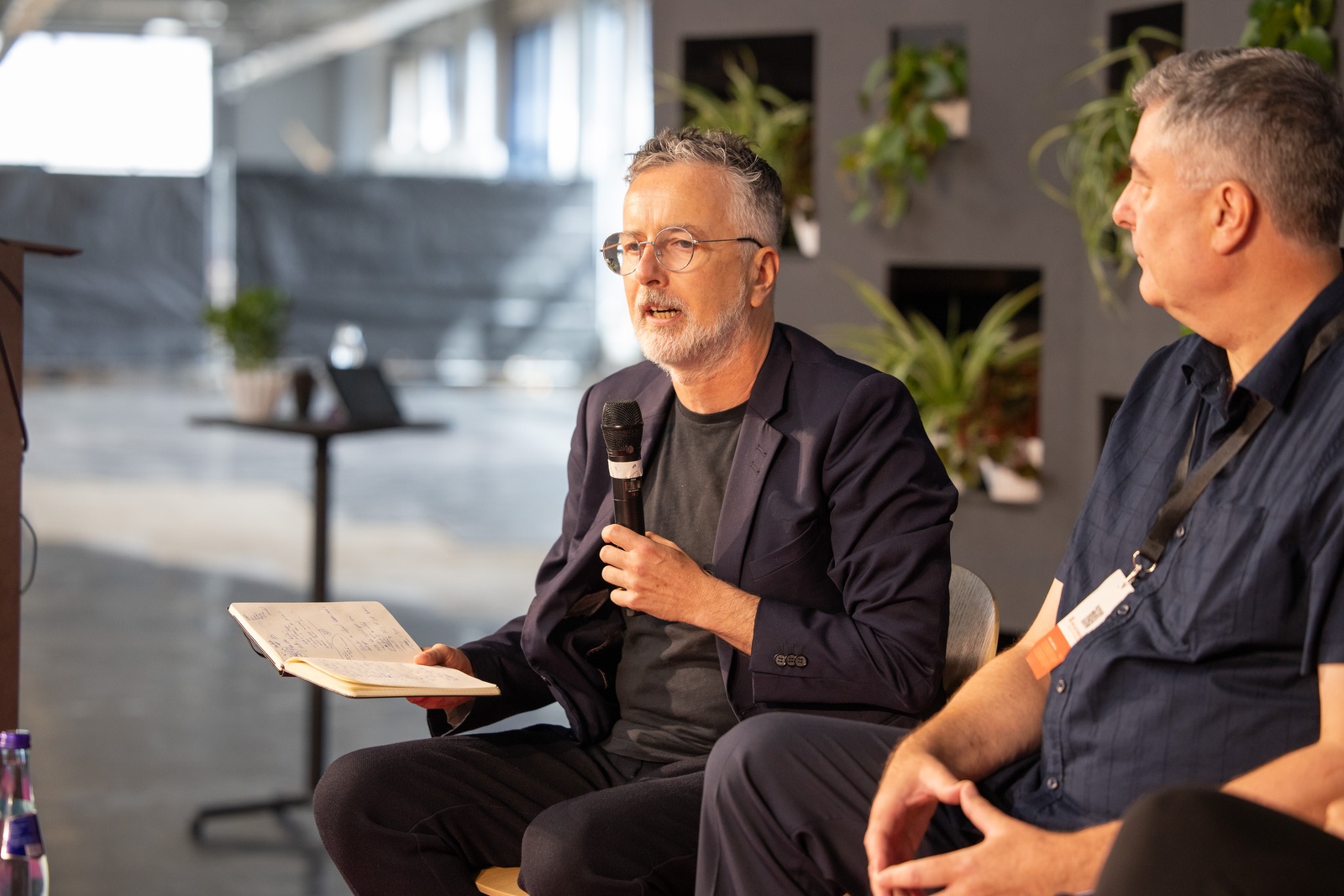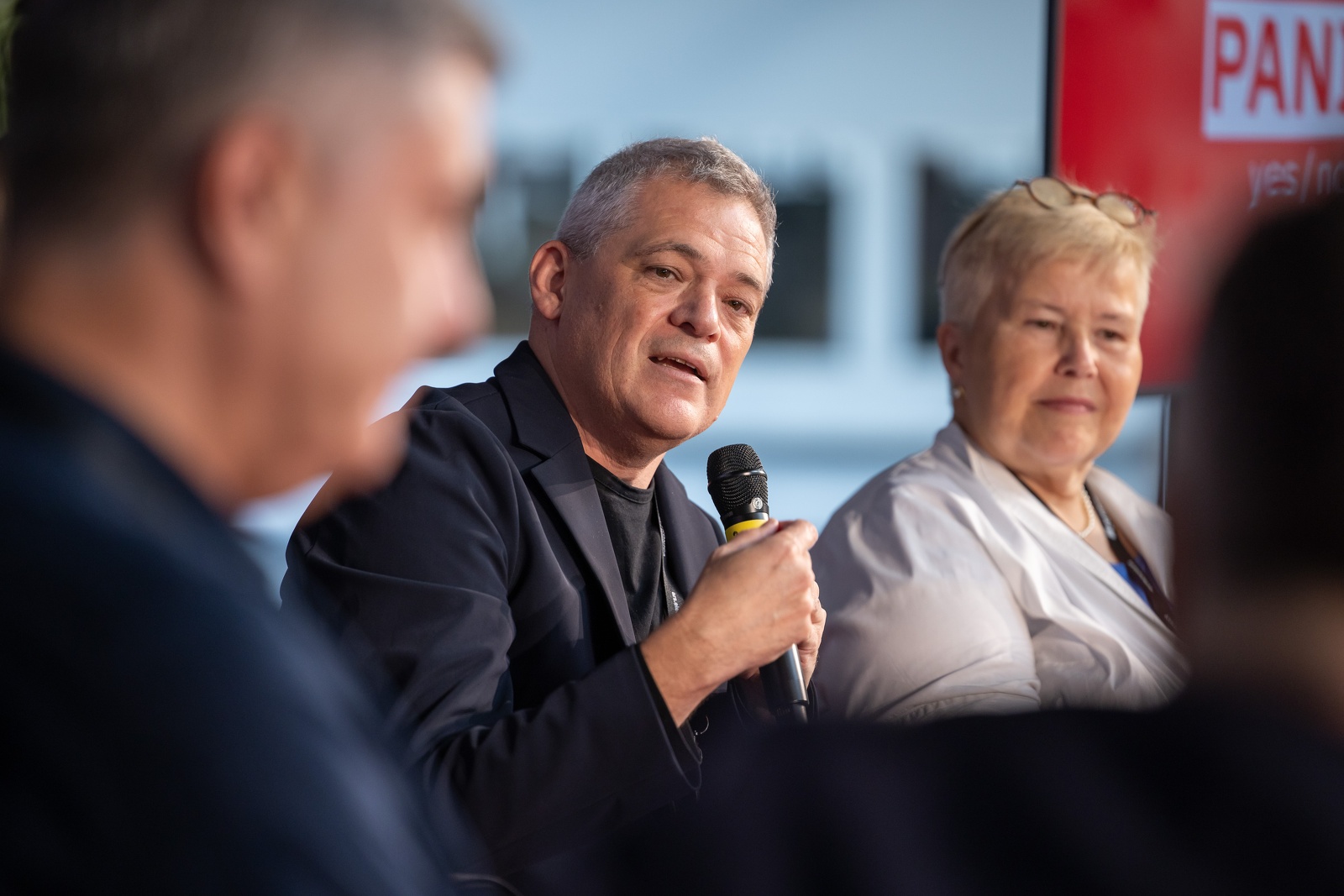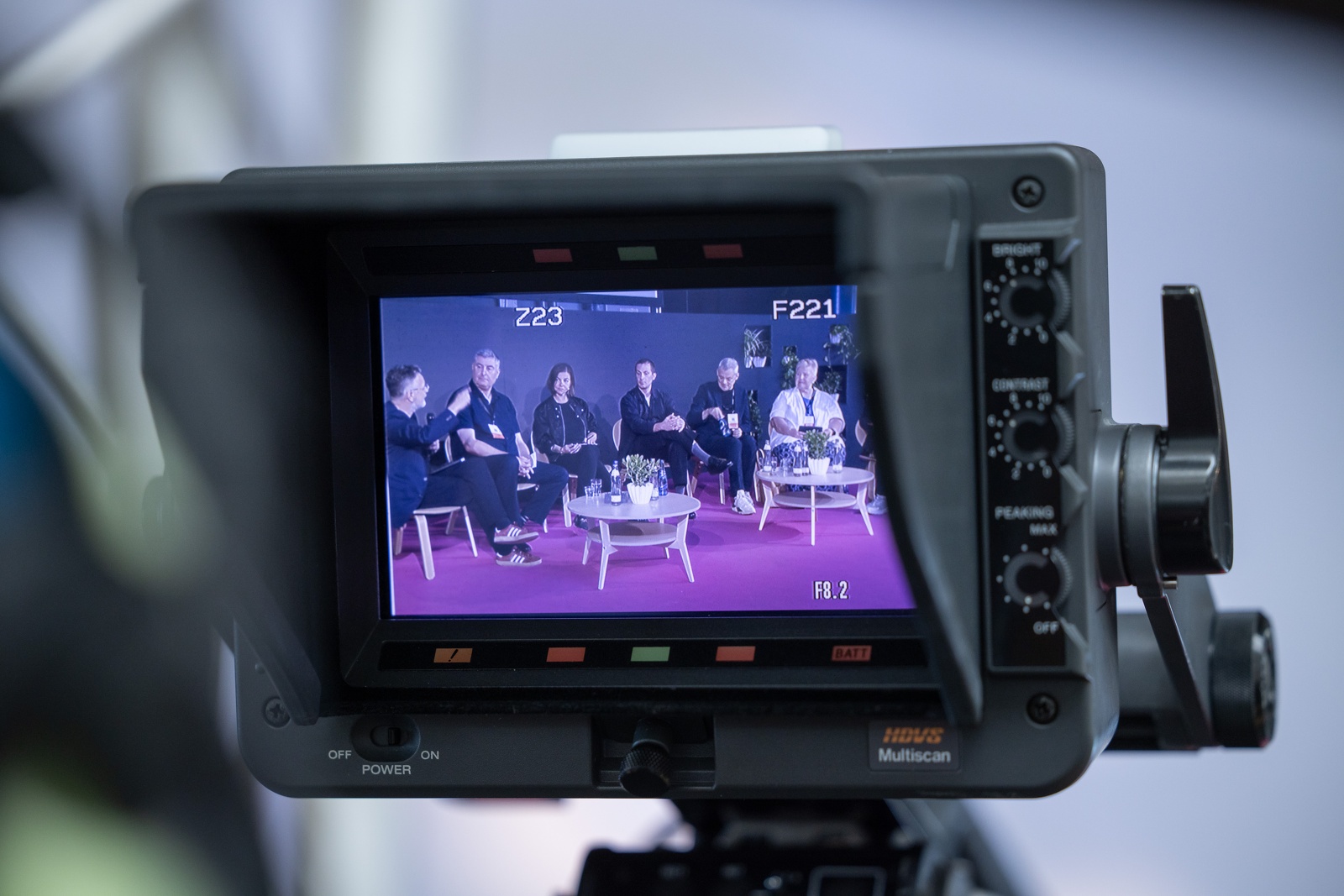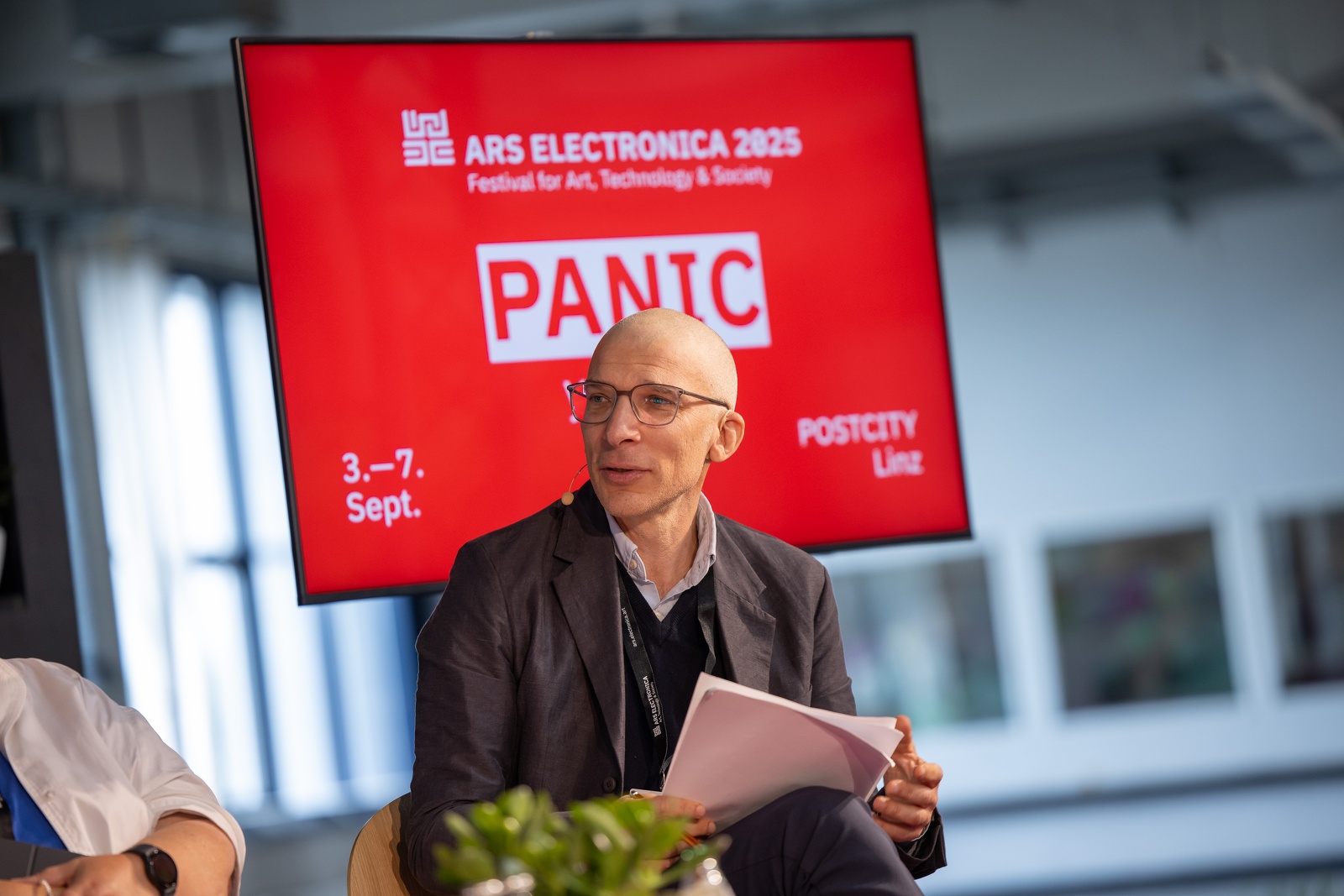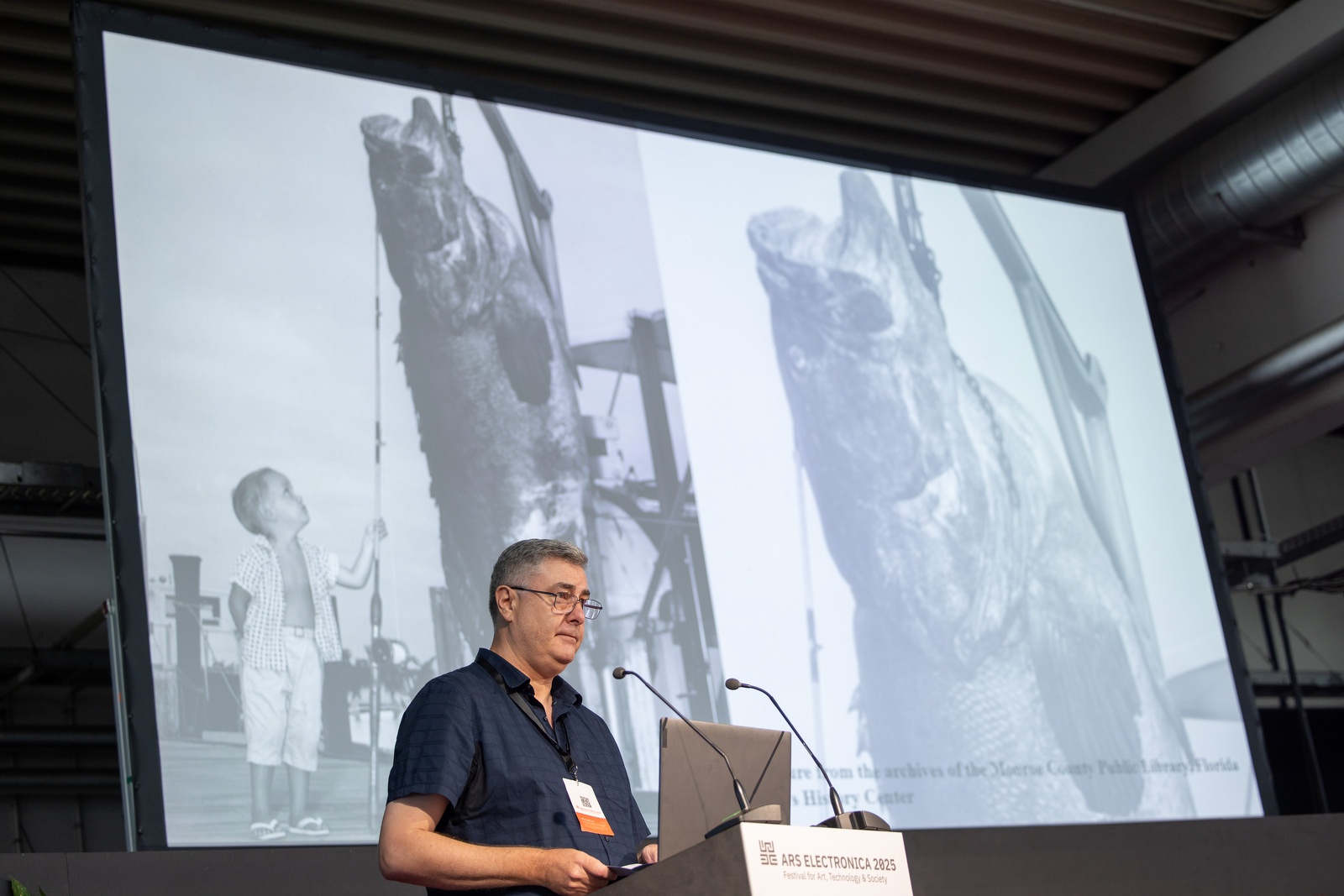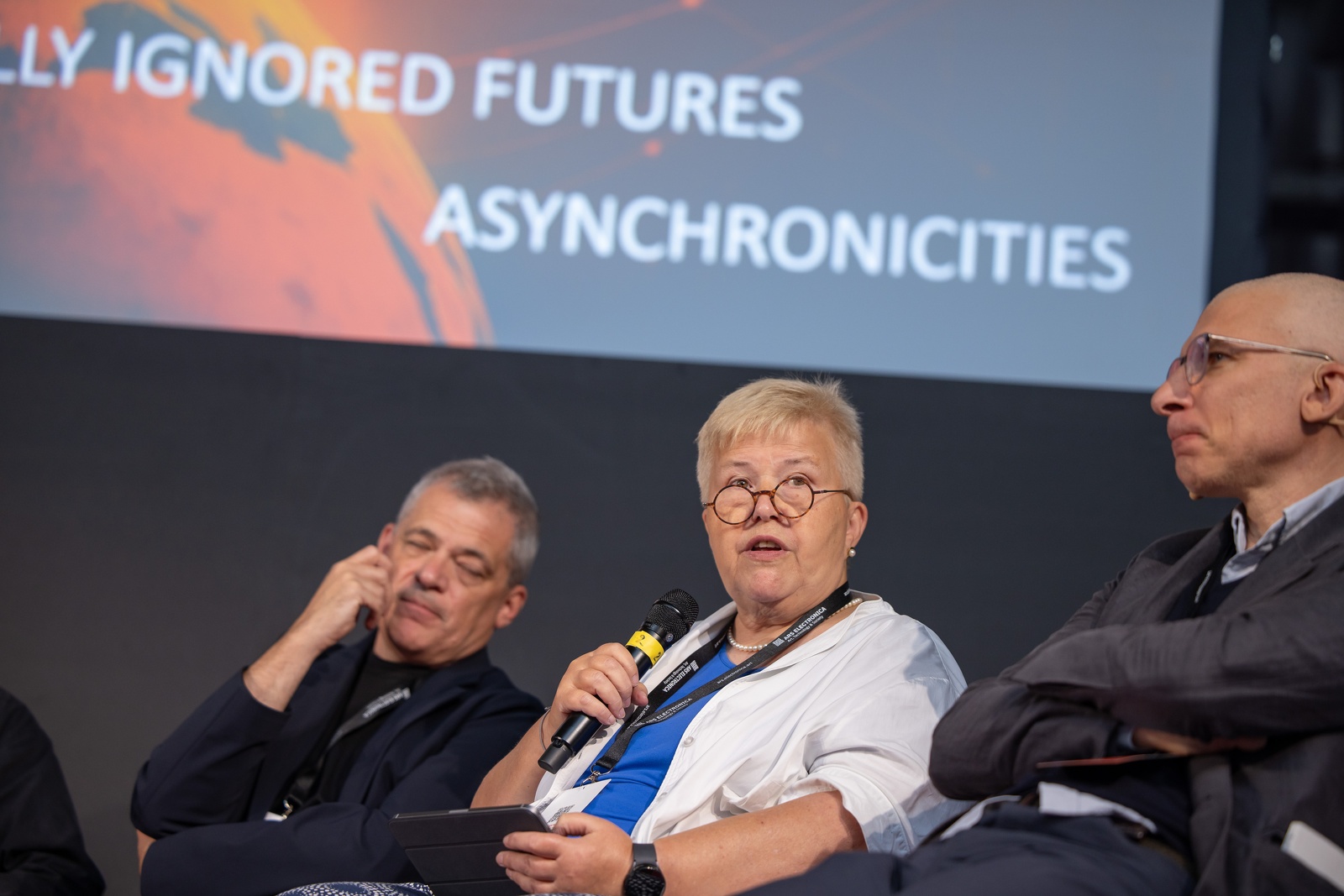“Earth Is a Sensorium” Sparks Interdisciplinary Dialogue at Ars Electronica Festival 2025
“Earth Is a Sensorium” Sparks Interdisciplinary Dialogue at Ars Electronica Festival 2025
The Ars Electronica Festival 2025 in Linz delivered yet another thought-provoking experience with the conference “Earth Is a Sensorium,” a session that explored how our understanding of the world shapes our actions within it. Held under the festival’s overarching theme of “Panic,” the event brought together leading voices from the sciences, humanities, law, and the arts to revisit and reimagine the concept of the Great Acceleration.
Rethinking the Great Acceleration
The session opened with a compelling lecture by Alexander Damianos (GB/GR) that traced the origins of the Great Acceleration – a term coined to describe the exponential rise in human activity and its planetary impact since the mid-20th century. From ocean acidification to GDP growth and the proliferation of fast-food chains, the charts that once illustrated this phenomenon have become cultural artifacts in their own right.
But the panel didn’t stop at extending these charts to the present day. Instead, it asked a deeper question: How have these visualizations influenced scientific institutions, public discourse, and our collective imagination? The conversation challenged attendees to consider not just the data, but the societal frameworks that shape and are shaped by it.
A Sensorium of Perspectives
The panel featured interdisciplinary insights that transformed the session into a living “sensorium” – a space where knowledge, perception, and emotion converged. Speakers; Owen Gaffney (IE/SE), Mark Williams (GB), Armen Avanessian (AT), Ulrike Felt (AT); each tackled the question: “How do the Great Acceleration charts sense and make sense of the world?” Their answers ranged from critiques of data colonialism to poetic reflections on ecological grief.
A Call to Action
“Earth Is a Sensorium” was more than a panel – it was a call to reimagine how we engage with the Earth as a dynamic, interconnected system. By blending data with dialogue, and analysis with art, the session underscored the urgency of updating not just our charts, but our collective consciousness.
As the Anthropocene continues to unfold, events like this remind us that the future of planetary stewardship lies in interdisciplinary collaboration and imaginative thinking. The sensorium is open – what we choose to sense, and how we respond, is up to us.
Studiotopia Collective Event: A World Café of Collaboration
The symposium’s final event – the Studiotopia Collective Event – brought together the artist-scientist duos who had spent months in residency across Europe. Designed as an interactive World Café, the session invited audiences to engage directly with the residents, exploring the diverse modes of art-science collaboration that emerged from the Studiotopia project.
Participants included:
- Julien Fezansis an artist in residency with Hexagone Scène Nationale, focusing on sound engineering, documentary, and theater.
- Justyna Górowskais an artist in residency with Centre for Contemporary Art Laznia, focusing on DNA digital data storage, sustainability, and data preservation.
- Cezar Mocanand Hung Lu Chan are artists in residency with Beta festival.
- Dmitry Morozovis an artist in residency with Kersnikova, focusing on contemporary media art including sound, robotics, and installations.
- Sybille Neumeyeris an artist in residency with Kersnikova, focusing on environmental issues, climate crisis, and ecological relationships.
- John Palmesinois an artist in residency with Ars Electronica, focusing on the Anthropocene.
- Masha Patsyukis an artist in residency with Hexagone Scène Nationale, focusing on film, digital arts, and performance.
- Lea Luka Sikauand Denisa Pubalova are artists in residency with LABoral, focusing on multisensory installations, vibroacoustics, and media art.
- Karolina Sobeckais an artist in residency with Centre for Contemporary Art Laznia, focusing on heat, healing, resistance, and energy flows.
- Fanny Sorianois an artist in residency with Hexagone Scène Nationale, focusing on body, animality, and metamorphosis.
- Miguel Teodorois an artist in residency with CYENS Centre of Excellence, focusing on materiality, geopolitics, and ecology.
- Laure Winantsand Adrien de Lucca are artists in residency with GLUON.
- Alexander Damianosis a scientist in residency with Ars Electronica, focusing on the Anthropocene.
- Marina Dermastiais a scientist in residency with Kersnikova, focusing on cell biology and botany.
- Cailean Finnis a scientist in residency with Beta festival.
- Kalliopi Ioumpais a scientist in residency with Hexagone Scène Nationale, focusing on social cognitive neuroscience, molecular biology, and experimental psychology.
- Ziggy O’Rileyis a scientist in residency with Kersnikova, focusing on human-robot interaction, moral and social cognition, and ethics of emerging technologies.
- Michał Piaseckiand Agnieszka Szostok are scientists in residency with Centre for Contemporary Art Laznia, focusing on heat, healing, resistance, and energy flows.
- Colas Schretter and Louise Delhayeare scientists in residency with GLUON.
The event showcased projects ranging from human-robot interaction and moral cognition to botany, geopolitics, and experimental psychology. It was a celebration of the messy, generative space where disciplines collide – and where new ways of sensing and responding to the world are born.
You can watch the video of the panel bellow.
Bridging Art and Science: Studiotopia Invites Public to Explore Creative Collaborations @Ars Electronica 2025
Bridging Art and Science: Studiotopia Invites Public to Explore Creative Collaborations @Ars Electronica 2025
The Studiotopia Consortium kindly invites you to the Studiotopia Collective Event – a dynamic gathering that celebrates the fusion of artistic imagination and scientific inquiry. The event will be held on Sunday, 7th of September from 13:00–14:00 at POSTCITY, First Floor, Conference Hall.
This unique session brings together the Studiotopia Artists & Scientists in Residence, showcasing the innovative projects born from their interdisciplinary collaborations. From climate change to biotechnology, these duos have tackled some of the most pressing challenges of our time through the lens of creativity and research.
Designed as an interactive World Café, the event invites attendees to engage directly with the residents, explore their processes, and contribute to the dialogue on how art and science can co-create new perspectives for a sustainable future.
The event is part of the Earth Is a Sensorium conference programme. The full programme of the conference day is accessible at this link. More information about Ars Electronica Festival 2025 is available on the official site of the festival.
Join us and be part of the conversation that’s shaping tomorrow.
STUDIOTOPIA Announces Open Call During Ars Electronica 2024
STUDIOTOPIA unveils new opportunities for artists and scientists
STUDIOTOPIA Announces Open Call During Ars Electronica 2024
During this year’s Ars Electronica Festival, attended by over 112,000 visitors from around the world, the STUDIOTOPIA team announced the launch of the second edition of their prestigious Residency Programme. Aimed at fostering collaboration between artists and scientists, this programme is set to explore the theme of the Symbiocene and promote innovative, cross-disciplinary approaches to sustainable development.
The second edition of the STUDIOTOPIA Residency Programme invites emerging artists and young scientists to apply for a 12-month residency, during which they will collaborate on research-driven projects addressing both local and global environmental challenges. The programme, which was presented by the STUDIOTOPIA team at the Ars Electronica Festival 2024, seeks to break down barriers between disciplines. It offers participants the opportunity to engage deeply with both art and science, developing unique outputs that explore the interconnectedness of life on Earth.
Open Call Highlights:
- For Emerging Artists: Eight residencies will be offered to artists who will collaborate with established scientists, focusing on local sustainability and environmental challenges. For more details, refer to the Emerging Artists Challenge Booklet.
- For Young Scientists: Ten scientists will have the opportunity to work with renowned contemporary artists, developing creative responses to global and local challenges. For more details, refer to the Young Scientists Challenge Booklet.
Key Dates:
- Open Call Period: 4th September – 31st October 2024
- Residency Duration: 12 months (December 2024 – December 2025)
- Exhibition Period: September 2025 – March 2027
Info Sessions:
- 18th September 2024, 11:30 AM CEST
- 9th October 2024, 11:30 AM CEST
During these sessions, the STUDIOTOPIA team will provide an overview of the programme and answer all questions related to the application process, challenges, and residency details.
Register here.
This second edition of the Residency Programme represents an exciting opportunity for individuals ready to push the boundaries of their fields. By bringing together artists and scientists, the programme facilitates the exploration of the convergence of art and science in addressing today’s most pressing environmental issues.

